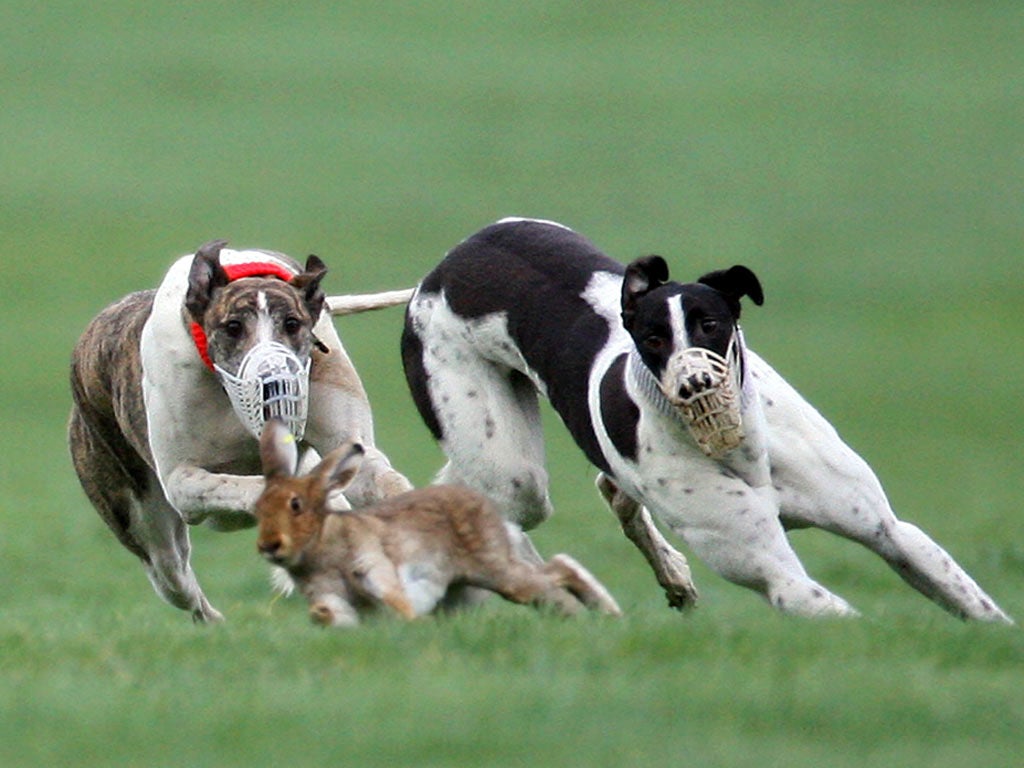Threats, car chases and arson: how the hare coursing ban is flouted
A battle is raging between criminal gangs and landowner farmers

Despite the imposition of the Hunting Act seven years ago and the banning of historic hare coursing events such as the Waterloo Cup, the illicit pursuit of the iconic Lepus europaeus continues apace in the British countryside.
After an initial decline, farmers say that the number of incidents has now returned to pre-ban levels and they are "under siege" from violent gangs committing the UK's number one wildlife crime.
They fear it is only a matter of time before someone is hurt or killed in a confrontation with the coursers.
One farmer has had a barn set alight, causing £20,000 of damage to crops. Others report vehicles being rammed when they try to deny gangs access to their land. There are reports of 90mph car chases around country lanes.
In the fertile crescent of land to the east of the A1 in Lincolnshire there have been more than 530 reported incidents since the "season" began in the autumn.
Farmers claim that figure is likely to double before the spring crops rise too high for the hares to be beaten into the open for the chasing dogs.
Organised by what police describe as "career criminals", tens of thousands of pounds can change hands in gambling at such events, in which coursers will hunt a field until all the hares have been chased or killed.
But Mark Leggott, a farmer and chairman of the Boston District Hare Group, believes the current police response is inadequate and that rising tensions between coursers and landowners, whose land can be hit three or four times in a single day – leaving crops and fields damaged – could soon spill over into bloodshed.
"Someone in the end will get killed," he said. "Some farming families are genuinely scared of these people. They bully their way on to their farms and they say: 'F*** off if you want to live'.
"And this can be 20 yards from your back door. There will be a fatality." Mr Leggott says he has been spat at, threatened and his vehicle's windscreen smashed after trying to stop coursing.
"In the past some farmers have been so desperate they have taken guns out to confront these people.
"You have highly charged emotions and firearms being held. There will be an accident sooner or later."
Rural communities fear wildlife crime-fighting is falling victim to budget cuts and an emphasis on high-profile urban criminality. Lincolnshire remains the centre of the "sport". According to the National Wildlife Crime Unit, 62 per cent of all hare-related crimes take place in the county. Over the last three seasons, coursing accounted for a quarter of all reported wildlife crimes, making it the most common offence investigated by police nationwide.
The population of hares in Britain has declined by 80 per cent in the past 100 years. Inspector Andy Ham of Lincolnshire police, who heads the anti-coursing initiative Operation Galileo, said that the Fens' vast open spaces represent a challenge for his officers as well as offering ideal territory for the gangs to hide.
Despite the ban on hunting with dogs, prosecutions for hare coursing have to rely on the well established legislation such as the Gaming Act 1968 to seize cash and vehicles. "We are not seeing any evidence that the introduction of new legislation is having any significant impact," said Insp Ham.
Figures from the Crown Prosecution Service show that so far this year just nine hare coursing-related cases have reached the courts – down on 14 from 2009/10.
Even in the highest profile cases the legal sanctions are minimal.
The International Fund for Animal Welfare was forced to take out a private prosecution against TV chef Clarissa Dickson-Wright. After admitting attending an illegal event along with co-defendant racehorse trainer Sir Mark Prescott, they were given absolute discharges by Scarborough magistrates in 2009.
With the culture of coursing so ingrained and the rewards so high, the gangs are not easily deterred.
"In many cases we are dealing with people who are no stranger to using violence," said Insp Ham.
"It is not uncommon for police officers who find themselves outnumbered to be offered violence."
